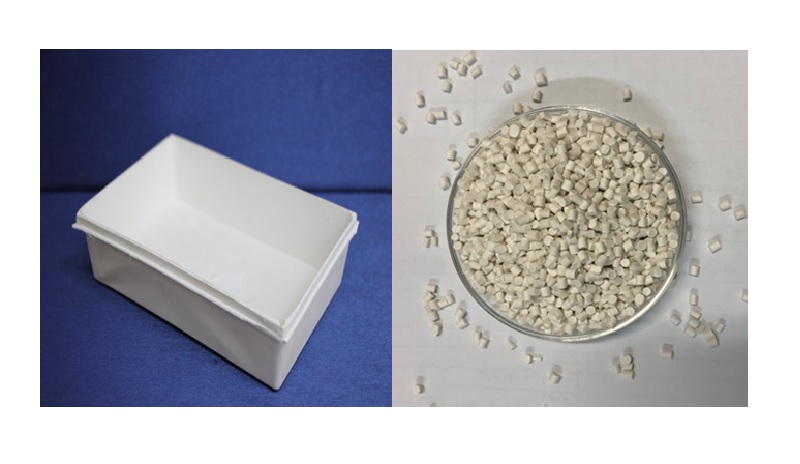RIFST’s President announced: Completely biodegradable disposable containers were made for the first time in the country using bio-polymers in cooperation with the private sector.
In this research project, with the aim of reducing the disadvantages of single-use containers in the market, including plastic containers of petroleum and plant origin, and improving the health of the society, an attempt has been made to produce completely biodegradable containers.
He stated that today's lifestyle has caused the use of single-use containers as the most common environmental pollutants, he added: In our country, currently, some liquids and hot foods such as tea, hot drinks, soup and also, some frozen materials such as ice cream are used from disposable polystyrene containers and recently polypropylene containers as well as so-called vegetable containers based on starch, which are unfortunately either non-biodegradable or partially biodegradable.
Current disposable containers do not fully decompose in nature
"Dr. Mohammad Reza Abdulahi Moghadam", the principal researcher of this research project, also said: In this project, first, 100% biodegradable and compostable polymer composite granules are prepared from the combination of synthetic biopolymers with natural polymers such as starch and lignocellulosic materials, and then using manufactured granules all kinds of disposable food packaging containers were made.
The member of the academic staff of the Department of Food Chemistry at the Research Institute of Food Science and Technology continued: Considering their long life that sometimes reaches several hundreds of years, common plastic containers reduce the permeability of soil surface, cause soil pollution and decrease the productivity of agricultural lands by entering agricultural lands and spreading on the surface of these fields.
He stated that these microplastic pollutions can also cause genetic changes and reduce the body's immunity against diseases by entering agricultural products and the human food cycle. Diseases such as cancer will cause genetic changes in humans in the long run.
He continued: The research in this area started in Iran many years ago and in 2014, the first production unit of plant-based disposable containers was launched. In the formulation of the polymers used in the construction of these containers, relatively large amounts of non-biodegradable polymers of petroleum origin are usually used, but in the formulation used in this research project, all the polymers used are biodegradable.
Referring to the public acceptance for the use of environmentally friendly products, he said: Since all the products of this project are 100% biodegradable and compostable, therefore, a good future is predicted for the mass production and export of this product.

